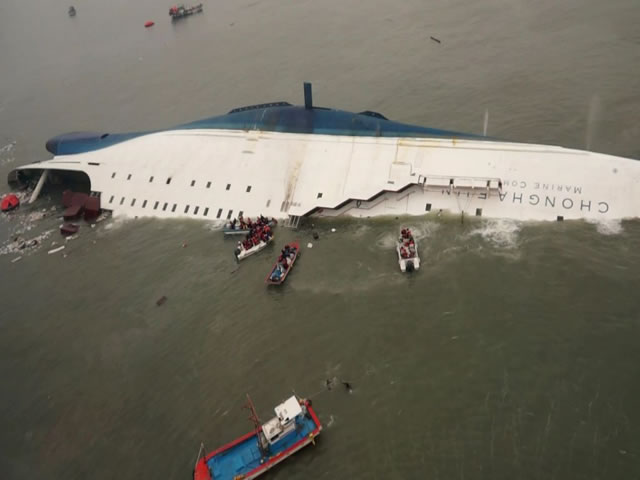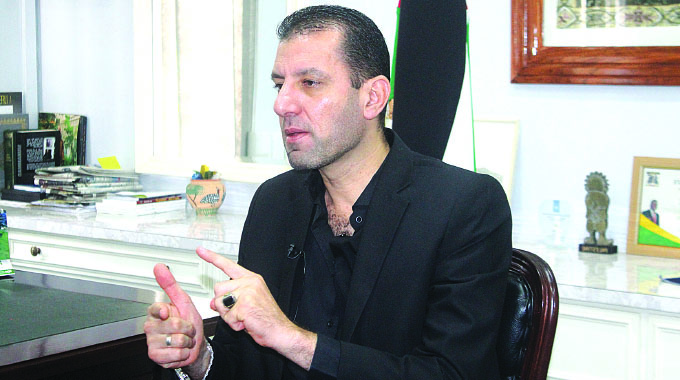Reflections on Zim-Pakistani relations
AdeelaNaureen and Umar Waqar
AN 18-member delegation from the National Defence University, Islamabad comprising senior defence and public sector officers (mostly of the rank of Brig Generals or equivalent), arrived in Harare on Sunday April 20, bringing with it good will and best wishes for the people and Government of Zimbabwe. The exchange of high level delegation between Pakistan and Zimbabwe indicates growing cooperation between two time tested friends.
The delegation arrives on the land of Mugabe, when the nation is celebrating its 34th Independence Day.
The sacrifices made by the sons and daughters of Zimbabwe in their long struggle for independence is like a beacon of light for entire world and reminds us that freedom does not come cheap and that we have to make all out efforts to preserve it at any cost.
The delegation will be meeting with Zimbabwean military hierarchy as well as political leadership and exchange ideas in enhancing the existing cooperation.
The delegation will also exchange views with their counter parts in Zimbabwean National Defence College, where senior Pakistani military officers have rubbed shoulders with their Zimbabwean brothers and are helping in running of the Strategic Courses on National Defence and Security.
Other than sharing some interesting historical developments like coincidence of hero’s day in Zimbabwe with Pakistan’s Independence day on August 14, Zimbabwe and Pakistan have a shared journey of democratisation.
Last year both nations went through their respective electoral process, Pakistan held its parliamentary and presidential elections in May and July , whereas Zimbabwe had parliamentary and presidential elections on July 31.
As far as the democratisation experience has been concerned, Zimbabwe has fared better with real democratisation of polity and economy, President Mugabe’s Economic Indigenisation models is being studied as alternative model for development in the developing world.
Pakistan has had its own challenges of fighting the scourge of terrorism in the last decade or so, which has affected the economy and foreign direct investment, however; the silver lining has been the resolve of the people to remain resilient and steadfast in these turbulent times and pave way for continuation of the democratisation process.
It is the first time that Pakistan had change of guard through a democratic election process, the power transfer from one democratic government to another has been hailed at global level.
The election of Mr Nawaz Sharif as the prime minister and Mr Mamnoon Hussain as the president in a fairly contested democratic process speaks of a mature democracy and rule of civilian rule.
Despite the threat of terrorism, this nation of 180 million strong decided to fight the terrorists’ bullet through the ballot.
Pakistan’s economic indicators have shown positive signs, despite so many challenges, the Karachi Stock Exchange; KSE 100 index hit unbelievable record of 29 000 points and a guaranteed returning profit of 70 percent within six months.
This is mainly led by free and fair elections and a clear majority government in the country. Now KSE is being considered as best performing market of the world in the last three years.
As per Economy Watch, GDP (PPP), US Dollars for Pakistan in year 2013 was US$ 542.216 Billion.
This makes Pakistan number 27 in world rankings according to GDP (PPP), US Dollars in year 2013.
In the previous year, 2012, GDP (PPP), US Dollars for Pakistan was US$ 515.38 billion. GDP (PPP), US Dollars for Pakistan in 2013 was or will be 5.21 percent more than it was or will be in 2012.
In the following or forecast year, 2014, GDP (PPP), US Dollars for Pakistan will be US$571.28 billion, which is 5.36 percent more than the 2013 figure.
Pakistani currency, the Rupee, appreciated by 7 percent against the US dollar in last month only, indicating growing confidence of business community at home and abroad.
With a bouncing economy and successful fight against terrorism Pakistan is projected to become a major driver of the economy in the region with its share of contribution to global economy increasing substantially by the year 2020.
China Pakistan are opening a new economic corridor, as per Emirates 24/7,China and Pakistan set their sights on developing a transport link from North Western China through rugged Pakistani mountains to the Arabian Sea, a route they hope will boost economic growth and slash shipping times.
A broad agreement for the “economic corridor” was among eight pacts signed following a meeting in Beijing between Chinese Premier Li Keqiang and Pakistani Prime Minister Nawaz Sharif last year.
The transport link was described as a “long-term plan” to connect the Chinese city of Kashgar to the Pakistani port of Gwadar, more than 2 000 km away across the towering Karakoram mountains and Pakistan’s Baluchistan province.
Another agreement will see a fibre optic cable laid from the Chinese border to the Pakistani city of Rawalpindi that will boost Pakistan’s access to international communications networks.
Some analysts believe that Pakistan China economic corridor could have an impact of 100 billion USD boost to both countries within a span of ten years; if the Central Asian states like Kazakhstan, Kirgizstan, Afghanistan, Tajikistan and even Turkmenistan join this great Asian highway the economic dividends could be as big as a trillion dollars within next two decades.
Pakistan newly commissioned deep water Gawader port will start becoming a new hub of international commerce and trade sharing load of Dubai and Chahbahar of Iran in the region.
Pakistan and Zimbabwe have a shared history of democratisation and fight against colonial powers; both have already developed good diplomatic and defence relations and need to keep moving forward in their shred destiny.
The first major boost to these ties could come from Zimbabwe opening her long overdue Embassy in Islamabad and exchange of high level economic managers and political leaders.
Business community of both countries could move independently by visiting the markets and finding exiting opportunities through a mutually agreed win win strategy.
Zimbabwe’s enormous potential in agriculture and tourism could get a boost by inviting Pakistani tourists and entrepreneurs in the coming international tourism Indaba in Victoria Falls.
The commonalities of being from Anglophone group and similar education system can lend to collaboration in the Information Technology field as well, Pakistani ITC professionals can help building a strong IT base within Zimbabwe, and similarly Zimbabwean telecom companies can take their due share of Pakistan’s ever expanding telecom sector.
We urge the Zimbabwean Government to open the long awaited diplomatic mission in Islamabad, so that the existing diplomatic and military co-operation can be enhanced and both countries benefit from each other’s experiences in the fields of economic cooperation.
Zimbabwe and Pakistan are time tested friends; it is a matter of developing joint strategies and mechanisms which can help both developing nations to find their respective place in the community of nations.






Comments